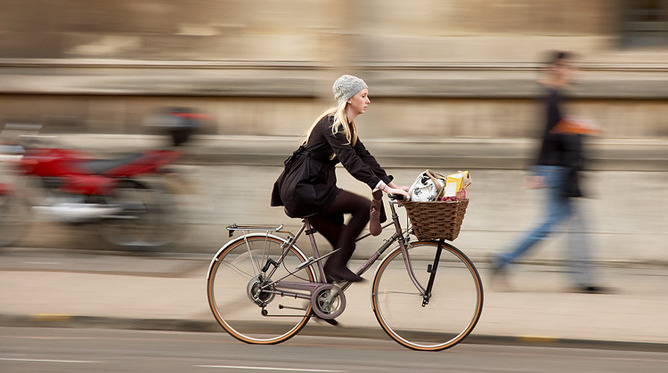
An independent study commissioned by Sustrans has shown that though most UK residents don’t ride a bike, the majority think the country would be better off if cycling was more popular, and would like the government to spend more on cycling.
The nationwide survey questioned 11,000 people, and asked how much they thought should be spent on cycling. The average figure came out as £26 per person annually – over six times more than the current £4 spend, a small percentage of the £300 per person spent on transport as a whole.
In total, 75 per cent of people wanted the government to spend more on making cycling safer, and 73 per cent said they believed ‘things would be better for people in general if more people cycled’.
Though 49 per cent of people owned a bike, 64 per cent never cycled, and riding a bike was perceived to be the least safe mode of transport when compared to walking, driving and using public transport.
Those questioned were fairly equal in their support of the possible options for improvement: painted cycle lanes, shared pavements, bus lanes that cyclists could use and traffic free cycle routes.
Sustrans hope the findings will influence the government spending review in November. Jason Torrance, Policy Director at Sustrans, said: “People want governments to spend more, and say that they would cycle more if it were safer. Now governments must close this gap between current spending and public demand.
“Physical inactivity, congestion and declining air quality cost our economy billions. Governments must act to secure a greater share of current transport investment for cycling and walking.
“The Spending Review in November and the devolved elections next May are perfect opportunities to do just that. Government must ensure the Cycling and Walking Investment Strategy is ambitious and guarantees long-term funding for active travel.”
The survey was carried out by ICM Unlimited. They interviewed a representative sample of 11,016 adults aged 16+, ensuring at least 1,100 were questioned in each of seven major cities in the UK. See the results here.





